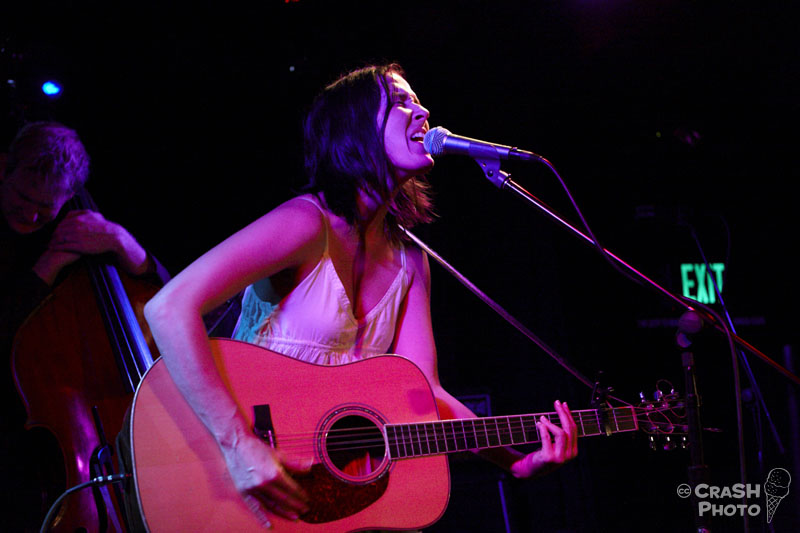Love was in the air at the Viper Room. Skirts, aftershave, and shoptalk joined the dense clatter of clinking glasses and perfunctory conversation. Digital cameras documented everything and everyone. Clean-starched shirts and skin-tight stockings did most of the talking for us. It was great. The night afforded the crowd an opportunity to dance, to mingle, and maybe with a neat business card, meet someone new. There was plenty of room to find love in all forms and brands, no matter what the cost.
The Answering Machine was on the stage when I built my nest by the back and began to survey the scene. The singer, slight and boyish, contorted and convulsed with a commanding professionalism behind every shuck and jive. Each soundly struck power-chord navigated us through brief, two-minute pop-punk adventures that usually concluded with a triumphant chorus and a sunny sentiment. It was loud, tight, and perfect for what the audience was after: fun, fun, more fun, and a discounted tequila / energy drink combo that the bar was hawking like the next great cure-all. It all felt right as rain. The blink-pivot-blink of prismatic bulbs, the body heat, the color, the odor, the electricity; every element was apropos to the Machines major chord assault, though I found it hard to believe that this same space would soon host Meikos heartfelt canon of disaffected folk-pop.
When Meiko took the stage, her body language implied a long day and a desire to get this one over with. Whether it was from drinking vodka redbulls with Perez Hilton at SXSW or simply from spending weeks on the road, exhaustion was apparent. Meikos music manifested her disconsolate interior energy with melodic American songs dipped in synths and underpinned by flourishes of mandolin, upright bass, and muted trumpet. The pieces were all in place, and, most impressively, Meikos voice — a diffident, defeated whisper — soared true and steady. The songs were laments for a timeless, tiring, self-defeating hobby we all take part in.
It was at some point after the second or third song that Meiko finally let us in on her secret. She admitted into the mic with a huff of relief I just broke up with my boyfriend. (A second of silence, then) Some in the crowd asserted their empathy with sounds of understanding while others diffused the moment with assorted, shouted words. I guess sadness is like good weather: we all know how it feels, but most dont really want to hear you talk about it. Both exist only as we define them, and in LA theyre both everywhere. Go figure.
Meiko and her band played and sung and strummed for forty-five minutes, maybe more. She played, for the most part, breakup songs. Songs with lyrics written on postcards and put under beds, or so she sang, sent to long gone lovers as air-mailed middle fingers. I blame you for my sadness, they seemed to say. Each was stuck knee-deep in a sense of of worthlessness, of complete and unyielding hopelessness that grows from the gut feeling that you are not, nor could be, loved. Meiko had been hurtand it made for a good show.





